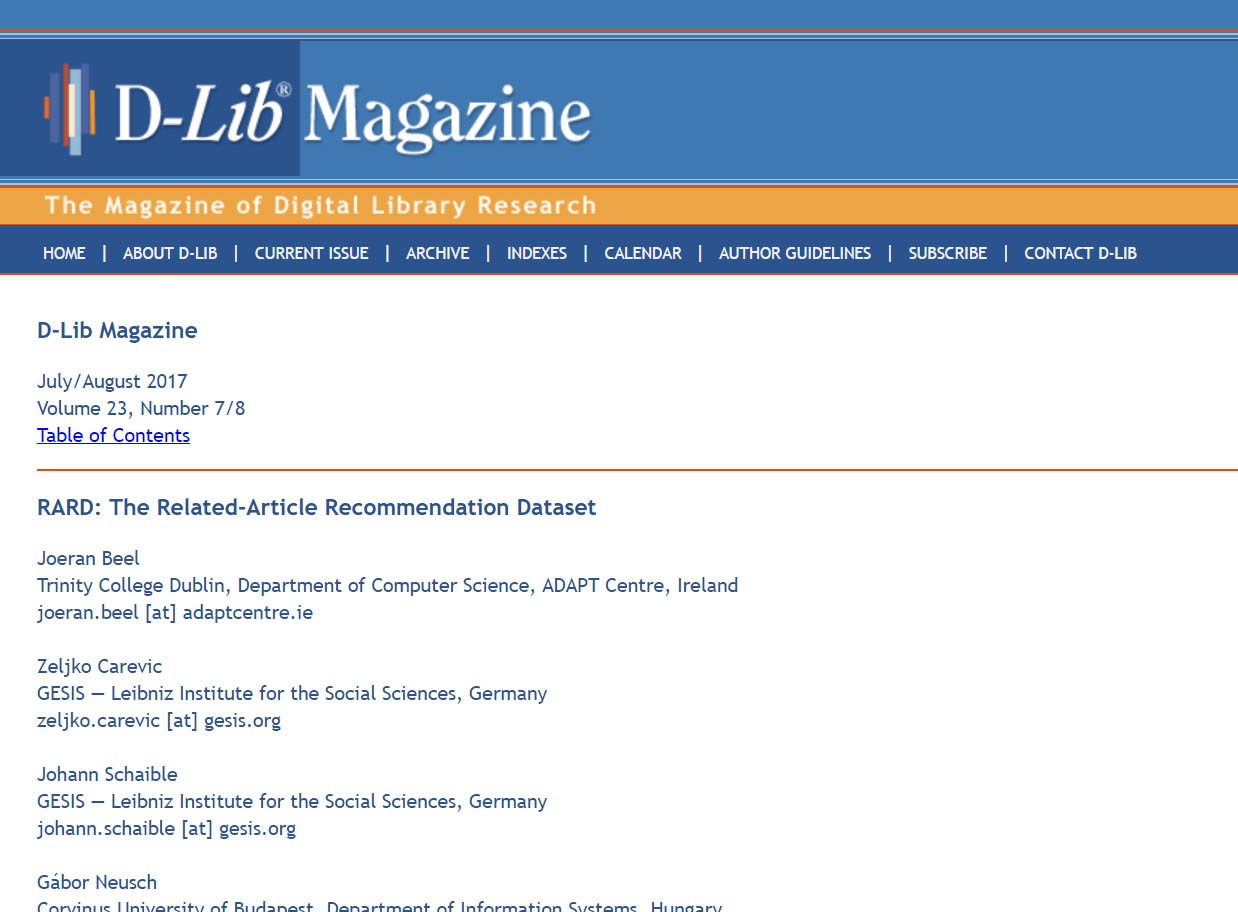We welcome two DAAD interns in recommender systems and machine learning (Dublin & Tokyo)
As part of the DAAD RISE Worldwide program, we were awarded two funded internship positions for two undergraduate students both being from Germany. The two interns will be conducting a research project as part of Mr. DLib in the fields of recommender systems, machine learning and natural language processing. Gordian (University Read more…







